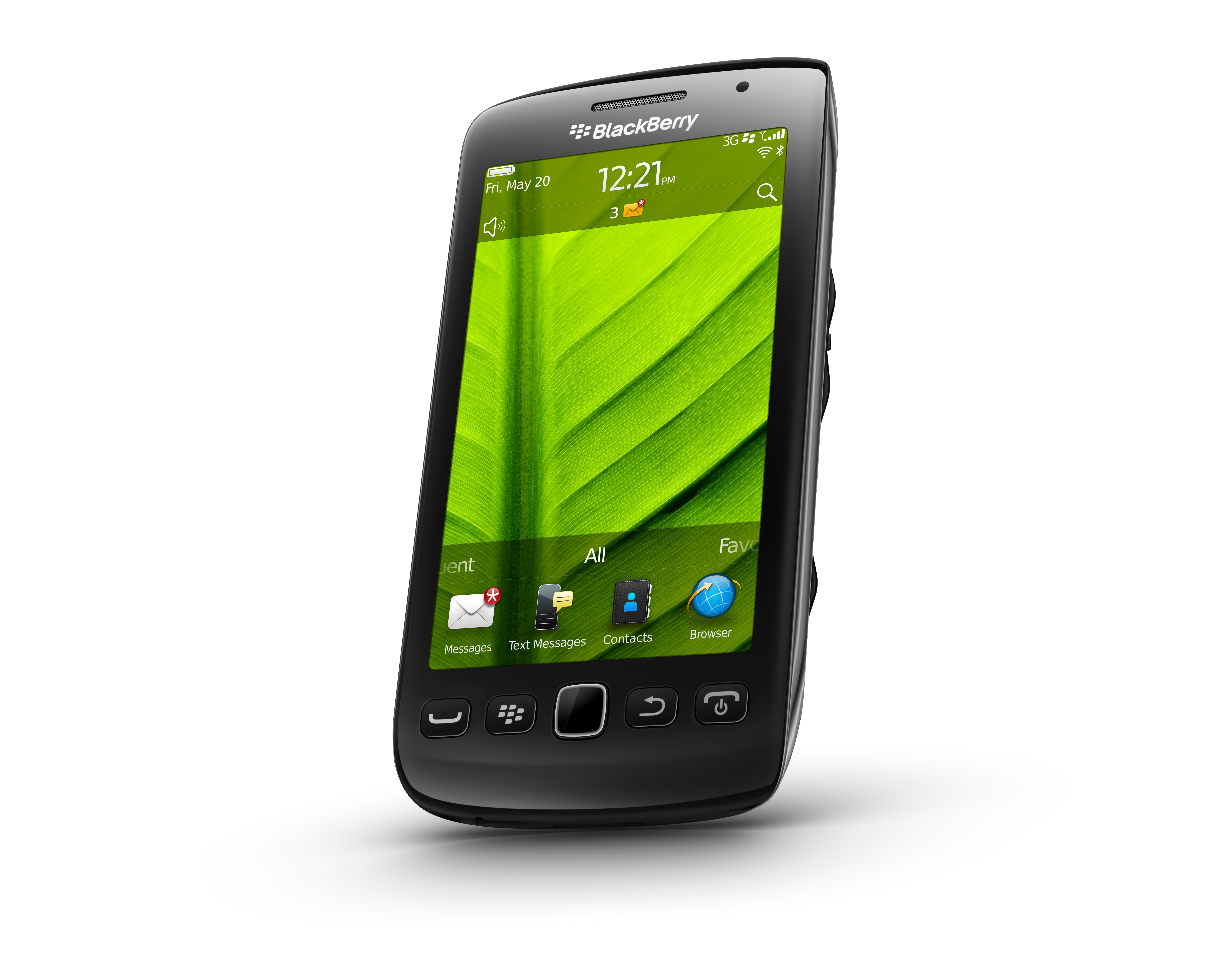TechRadar Verdict
Pros
- +
Good build quality
- +
Great screen
- +
Generally well-designed interface
- +
Excellent messaging options
- +
Good signal strength and 3G speed
Cons
- -
Lack of polish in OS
- -
Difficult keyboard
- -
GPS issues
- -
Browser is still below average
- -
Too pricey
Why you can trust TechRadar
It's taken a ridiculously long time to come, but this is it. This is the one. After the clickable screen of the BlackBerry Storm 2 and the touchscreen-with-slide-out-keyboard shenanigans of the original BlackBerry Torch, RIM has finally released a proper touchscreen smartphone.
This 3.7-inch touchscreen the largest RIM has ever made, it's also the highest resolution, with a handy 480 x 800 pixels on display. Which is good, because you want the new BlackBerry OS 7 to look its best, don't you?
If you're stuck deciding between this and the two other recently released BlackBerry phones, never fear - we've got an enlightening group test to pit the Torch 9860, Torch 9810 and Bold 9900 against each other to see which takes your fancy:
Powering this is a single-core 1.2GHz processor, not dual-core like the 1.2GHz processor humming along in the Samsung Galaxy S2. RIM's opinion is that dual-core is only necessary for tablets as it stands.
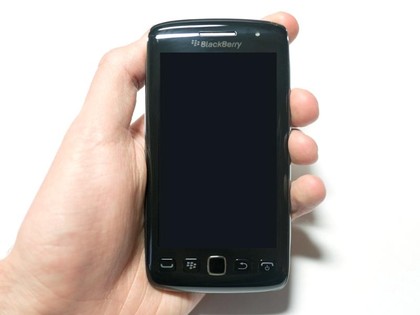
That said, a single-core processor never did the iPhone 4 any harm. And since the BlackBerry Torch 9860 doesn't deal with HD 1080p video like many phones, including the LG Optimus 2X, have a whizzy 3D interface like the HTC Sensation, or do stereoscopic 3D images like the LG Optimus 3D, we suspect it'll get along fine with a single-core CPU for now.
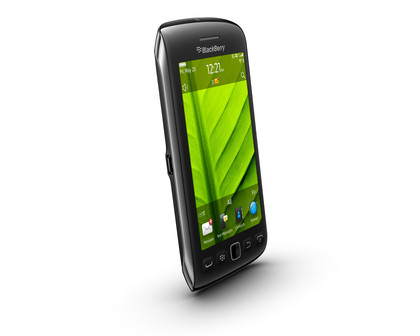
There's 4GB of on-board storage, although you can't use this any way you'd like, as we'll explain in the Apps section of this review. You can add up to 32GB more storage via the microSD card slot, which will be handy if you want to take a lot of videos with the 720p HD recording that's now available.
For the old-fashioned among us, you can take still photos with the 5MP camera, and there's a pretty powerful LED flash.
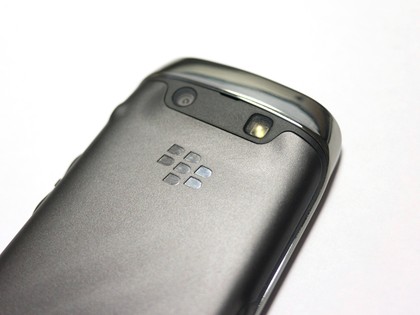
The usual wireless accoutrements are featured, with 802.11b/g/n Wi-Fi available, and 3G with a download speed of up to 14.4Mbps. Bluetooth is available, of course, as is cabling up with the micro USB connector.
The design of the BlackBerry Torch 9860 sits somewhere in between RIM's range and Samsung's Galaxy line. It's really quite appealing – sleek, but still obviously a BlackBerry.
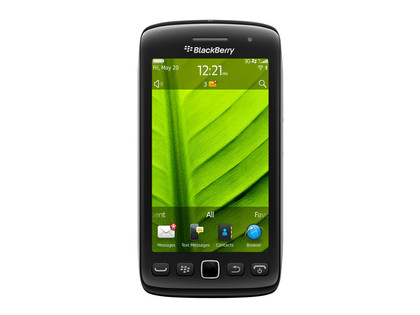
Although it's mostly plastic – save for the metal back plate – there's no give in its build at all, and it feels high quality (although to call it premium might be being a bit generous).
Across the bottom are five physical buttons: Call, Menu, Select, Escape and End (which is also the power button).
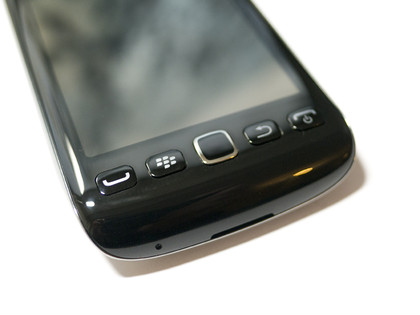
The middle Select button is also an optical trackpad, which might seem odd to have in an all-touch device, but you'll see why it's there in the Interface section of this review.
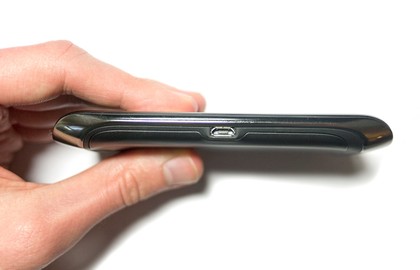
On the left-hand side of the device is the micro USB port, while the right side houses the volume controls and mute key, and the lone Convenience key.
There's a new design for these that makes them very subtle, but still easy to press. The 3.5mm jack is also on this side, which isn't massively convenient (we really prefer to have it on the top or bottom).
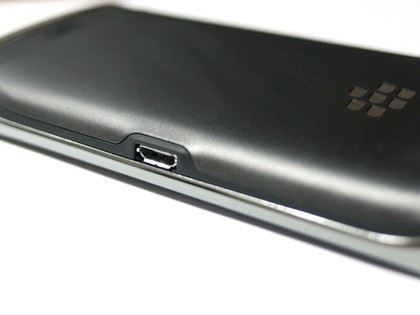
The top of the handset is the Lock button, while notification-light addicts will find this in its usual spot.
The back of the BlackBerry Torch 9860 features the 5MP camera's lens, and the LED flash. The metal backplate has a slightly matt feel to it that – combined with the overall shape and svelte profile – makes the phone very comfortable to hold.
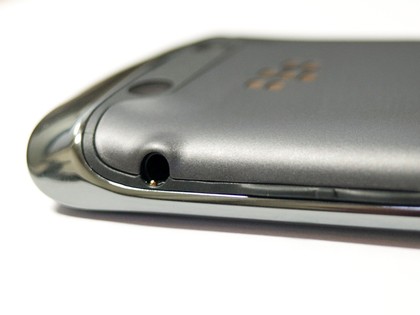
The Torch 9860 actually measures in at 120 x 62 x 11.5mm, making it ever so slightly larger than an iPhone 4 across the board. At 135g, it's fairly middle ground when it comes to weight, too.
The BlackBerry Torch 9860 will be available free on contract for around £36 per month.

Matt is TechRadar's Managing Editor for Entertainment, meaning he's in charge of persuading our team of writers and reviewers to watch the latest TV shows and movies on gorgeous TVs and listen to fantastic speakers and headphones. It's a tough task, as you can imagine. Matt has over a decade of experience in tech publishing, and previously ran the TV & audio coverage for our colleagues at T3.com, and before that he edited T3 magazine. During his career, he's also contributed to places as varied as Creative Bloq, PC Gamer, PetsRadar, MacLife, and Edge. TV and movie nerdism is his speciality, and he goes to the cinema three times a week. He's always happy to explain the virtues of Dolby Vision over a drink, but he might need to use props, like he's explaining the offside rule.
